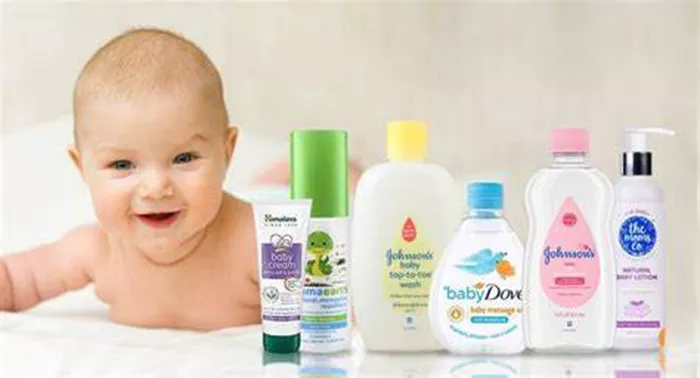Baby products encompass a wide range of items designed specifically for the care, safety, and comfort of infants and young children. These products are tailored to meet the needs of babies from newborn through toddlerhood, addressing various aspects of their growth and development. From feeding supplies to nursery furniture, baby products are integral to ensuring the well-being and proper care of young children.
Categories of Baby Products
Understanding the diverse categories of baby products helps parents make informed choices tailored to their baby’s needs. The main categories include:
1. Feeding: Bottles, breastfeeding accessories, formula, bibs, high chairs, and baby food makers.
2. Nursery: Cribs, bassinets, changing tables, dressers, and crib bedding.
3. Travel: Car seats, strollers, baby carriers, diaper bags, and travel cribs.
4. Safety: Baby monitors, safety gates, outlet covers, cabinet locks, and corner protectors.
5. Toys and Entertainment: Rattles, stuffed animals, activity gyms, books, and educational toys.
6. Clothing and Accessories: Onesies, sleepwear, outerwear, hats, mittens, and socks.
7. Health and Hygiene: Diapers, wipes, baby lotions, shampoos, thermometers, and grooming kits.
Essential Baby Products
For new parents, having the right essentials can make a significant difference. Here are some must-have baby items:
1. Crib and Mattress: A safe sleeping environment is crucial. A crib with a firm mattress helps prevent Sudden Infant Death Syndrome (SIDS).
2. Car Seat: An infant car seat is mandatory for bringing the baby home from the hospital and for all car travel.
3. Diapers and Wipes: Whether opting for disposable or cloth diapers, these are indispensable for daily hygiene.
4. Feeding Supplies: Bottles, nipples, and a breast pump for breastfeeding mothers are essential for feeding.
5. Clothing: Soft, comfortable clothing suited to the baby’s size and the season.
6. Stroller: For ease of travel and walks, a reliable stroller is necessary.
7. Baby Monitor: Allows parents to keep an eye on their baby from another room, ensuring safety and peace of mind.
8. Bathing Supplies: A baby bathtub, gentle soap, and soft towels are essential for bath time.
Safety Standards
When purchasing baby products, safety should be a top priority. Parents should look for products that comply with recognized safety standards and certifications:
1. Juvenile Products Manufacturers Association (JPMA): Products with the JPMA seal meet international, state, and federal safety standards.
2. Consumer Product Safety Commission (CPSC): Ensures that products meet safety requirements to protect consumers.
3. American Society for Testing and Materials (ASTM): ASTM standards ensure product safety and reliability.
4. European Standards (EN): For parents in Europe, EN certifications indicate compliance with European safety standards.
Age-Appropriate Selection
Choosing the right products for different stages of a baby’s development is essential for safety and suitability:
1. Newborn (0-3 months): Soft clothing, swaddle blankets, and a bassinet.
2. Infant (3-12 months): Age-appropriate toys, a high chair, and an activity center.
3. Toddler (1-3 years): Convertible car seats, interactive toys, and toddler-friendly utensils.
Usage Tips
To maximize the effectiveness and longevity of baby products, consider these tips:
1. Regular Cleaning: Keep feeding bottles, toys, and nursery items clean to prevent germs.
2. Proper Assembly: Follow the manufacturer’s instructions carefully for assembling cribs and car seats.
3. Check for Wear and Tear: Regularly inspect products for any damage or wear that could compromise safety.
4. Storage: Store products in a clean, dry place to maintain their condition.
Recall Information
Staying informed about product recalls is crucial for safety. Here’s how:
1. CPSC Website: Regularly check the Consumer Product Safety Commission’s website for updates.
2. Manufacturer Notifications: Register your baby products with the manufacturers to receive recall alerts.
3. Retailer Websites: Check major retailers’ recall sections for information.
Where to Buy
Purchasing baby products from reputable sources ensures quality and safety:
1. Specialty Baby Stores: Stores like Buy Buy Baby and Pottery Barn Kids offer curated selections.
2. Major Retailers: Amazon, Target, and Walmart have extensive product ranges and customer reviews.
3. Online Boutiques: Websites like The Tot and Maisonette offer high-quality, boutique options.
4. Second-hand Options: For budget-conscious parents, second-hand stores and consignment sales can be great, but always check safety standards and expiration dates.
In conclusion, navigating the world of baby products involves understanding the essentials, prioritizing safety, and making age-appropriate selections. By staying informed and choosing reputable retailers, parents can ensure they provide the best care for their little ones.


